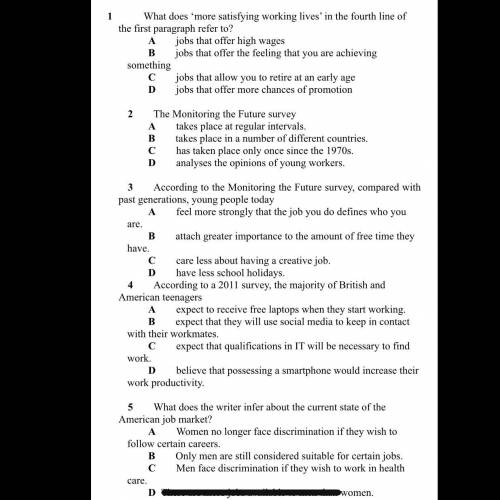HOW DO TEENAGERS SEE THEIR FUTURE WORKING LIVES? In a fast-changing world, what are young people’s hopes and expectations for their careers? The answer, according to a study that spans the generations, seems to be less busy but more satisfying working lives than their parents’.
Thousands of American students have been questioned about their attitudes for the Monitoring the Future survey every 15 years since the 1970s. The most recent results suggest that work is of less importance to the young people of today than the youth of the past, because they value leisure time more. The number of young people who said it was “very important” to have a job with more than two weeks’ paid holiday in the 2000s was double the number who said so in the 1970s. Three quarters of people born in the 1950s and 1960s said they expected work to be a central part of their lives, but only 63% of people born three decades later said the same. There was a higher percentage, however, of people who wanted to have a creative job in the 2000s – 41%, as opposed to 36% of the 1970s participants.
A separate survey has revealed teenagers’ faith in IT to help them to perform work-related tasks. In 2011 around 300 British and American 16 to 18-year-olds were questioned about what technology they expect their future employers to provide them with. About 70% agreed that a smartphone would make it easier to do their work – and a quarter said they expected one to come with their job. About 40% saw themselves getting a laptop from their future employers. Perhaps more surprisingly, nearly half expected to use social media for communicating with their colleagues, and nearly 10% expected to use it to deal with their bosses.
So what exactly would these creative, techno-savvy teenagers like to do for a living? A recent survey of American teenagers found that the arts and medicine were the most popular career paths, with 17% of teenagers expressing an interest in each. The next most popular choice was engineering. The least popular career choices included science (9%) and business (8%). Despite all careers being open to both sexes in the US, differences remain between boys’ and girls’ aspirations. A quarter of girls were interested in working in healthcare in some way, compared with only 9% of boys, while only 4% of girls wanted to be engineers, compared with 25% of boys.

Ответы
Показать ответы (3)
Другие вопросы по теме Английский язык
Популярные вопросы
- Состав участников жакерии .состав участников восстания уота тайлера...
3 - Фонетический разбор слова -стонало....
1 - Напишите уравнение реакции астата! )...
3 - Внешний угол при вершине равнобедренного треугольника в 4 раза больше...
1 - Обь. положение между параллелями, положение между мередианами, положение...
3 - Замените сочетания слов близкими по смыслу. запишите по образцу. обозначьте...
2 - Як зміниться сторона квадрата якщо його площу збільшити в 4 рази...
3 - Вкоробке орехов в 5 раз больше чем шоколадок.сколько орехов в коробке...
1 - Міні-твір 3-4 речення на основі власного про зоряне...
3 - Выделите грамматическую основу и недостающие знаки препинания : 1)...
1